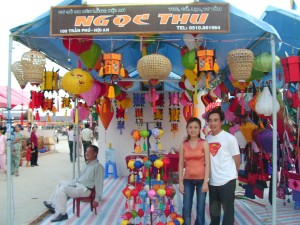Of course you are free to tip more or less as you see fit, depending on your perception of service quality and the length of your trip. Remember, a tip is not compulsory and should only be given when you receive excellent service.
TIPPING
Tipping is not compulsory in Vietnam, but it is enormously appreciated.
If you’re happy with the services provided then some tip is appropriate. It’s of great significance to the people who take care of you during your travels, inspires excellent service, and is an entrenched feature of the tourism industry.
Although in some hotels or restaurants, a service charge of 5% sometimes put on your bill but this money most likely not going to the pocket of workers. So, if you are happy with service provided, tipping should be given directly to the recipient.
The following amounts are per person suggestions based on local considerations and feedback from our past travelers:
In local restaurants, if you are a single diner, then a tip of around US$1 is appropriated. It is from 10% to 15% of your bill in the more up-market restaurants. If you are in group then depends on the group size, a gather of US$4 or 5 is good.
For drivers, we suggest US$5 if you are single traveler and an amount of US$10-15 from the whole group per day can be used.
For your tour guides or group leaders, tipping is much depending on their services. The amount is entirely a personal preference, however it is US$5-7 per day or US$2-4 per person in group tour is appropriate.
Of course you are free to tip more or less as you see fit, depending on your perception of service quality and the length of your trip. Remember, a tip is not compulsory and should only be given when you receive excellent service.
CLOTHING
Comfortable lightweight clothing in natural fabrics such as cotton is most suitable for traveling in Vietnam. The dress code is fairly casual as in most parts of the trop-ics but it is advisable to cover arms and legs in the evenings against biting insects. A lightweight raincoat and umbrella are a good idea in the rainy season and an umbrella can also offer useful shade from the sun.
Evenings in the north and the center can be quite chilly so bring a sweater and a good jacket especially from November to February. Visitors should not wear shorts, short skirts or other revealing clothing when visiting pa-godas and monasteries. Shoes must be removed before entering some religious building or a private home. It is therefore useful to wear shoes without too many laces and which can easily be taken off.
ELECTRICITY
Vietnam mainly uses 220V but in some areas, 110V is also used. A mixture of flat and round 2-pin outlets are used throughout the country. It is recommended to bring a universal plug adaptor.
INTERNET
Major hotels have Business Centers with PCs connected to the Internet. Some of them have wireless broadband access in rooms or public areas. Cybercafés are avail-able everywhere and are easily found in major towns and cities. Prices are reasonable, usually below US$1 per hour. Most Internet cafés are equipped with web-cams, headsets and microphones. Vietnam has an ex-ceptional amount of cafés and restaurants offering free WIFI connections, if having a meal or a drink internet fees are waived.
PHOTOGRAPHY
Normal print films are available in Vietnam as well as professional quality films (like slide films). Digital pho-tos can easily be downloaded and loaded onto a CD-Rom in case you run out of memory.
POSTAL MAIL
Postcards are sold at all main tourist sites and stamps are available from post offices and some hotel recep-tion desks. A postcard to Europe costs VND 9,000 (0.5 USD) to send and can take up to two weeks to reach the country of destination.
TELEPHONE
If you have worldwide coverage, you can bring your own mobile phone and use it to make domestic or in-ternational calls. Check with your mobile phone pro-vider for the costs before using it abroad – it may be expensive.
Most hotels now have IDD phones in rooms and it is possible to send faxes from hotels and post offices al-though these services are expensive. It may not always be possible to make international calls in remote areas.
TIME
Vietnam is GMT 7 and does not operate daylight-saving system.
HOURS OF BUSINESS
Offices are usually open from Monday to Friday from 07:30 or 08:00 until 17:00 or 18:00 and often close for lunch between 11:30 and 13:00. Some offices also open on Saturday morning. Shops open early and close any time between 18:00 and 22:00. Most shops are open 7 days a week.
Source: customvietnamtravel

